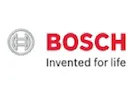Tomatoes are more than just plants for Tadashi Fukuoka. “They’re like my children,” he says. Fukuoka, a second-generation grower, heads up the family operation. He owns four greenhouses, cultivating 8,200 square meters near the Japanese port city of Kinko-cho in the prefecture of Kagoshima. And like a parent who frets over his offspring, sometimes his tomatoes give him cause for worry. They can contract diseases, and when they do, the farmer may lose most of his crop. “In the past, I had only my intuition to guide me when it came to spotting infection,” Fukuoka says. Now, though, he gets by with a little help from some friendly artificial intelligence (AI) that watches over his treasured nightshades.
Tomorrow’s agriculture meets traditional farming
This artificial intelligence is part of a Bosch technology solution called Plantect. Developed specifically for agriculture, Plantect is a data-based early-warning system that alerts farmers to the potential risk of crop infection. The system’s hardware consists of wireless sensors that measure temperature, humidity, and other conditions in the greenhouse.
These parameters affect crop development and provide the intelligence needed to detect the risk of infection, not only in tomatoes, but also in other greenhouse crops. The sensors’ readings are uploaded to the Bosch IoT cloud in a data package.
Real-time diagnosis with artificial intelligence
With the help of AI, the agricultural data is processed in the cloud, and the risk of disease is predicted. For example, grey mold, a fungal disease, spreads at 90 percent humidity and an ambient temperature of 22 degrees Celsius. Those two readings are easily taken, but Plantect factors some 100 parameters into the equation in order to predict the risk of infection with far greater accuracy. These parameters, some of them based on sensor data, include the total time in which optimum conditions have prevailed, plant age, disease history, and weather forecasts. Like a physician, the AI system has to learn everything about a disease before it can draw the right conclusions from the agricultural data. To make this machine learning process possible, Bosch’s FUJI (Future with Japanese Innovation) growth initiative, and the Bosch Center for Artificial Intelligence (BCAI), collected a vast trove of data from Plantect devices over several years. Every ten minutes, new data packets arrive in the cloud, around ten million of which have been assessed to date. In Japan, more than 4,000 orders have been received for Plantect devices. And in 2019, these connected agricultural systems will go on sale in South Korea.
The right information at the right time
One of the best things about Plantect is its remarkable convenience. Its findings flow into an online browser-based presentation that the farmer can call up anytime. An alert pops up on Tadashi Fukuoka’s tablet the moment Plantect detects a likely risk of infection in his greenhouses. He can then respond with the appropriate measures to fight the disease at an early stage and thus avoid crop loss. Managing incident sunlight is a big part of plant care, so Plantect also offers relevant suggestions to the grower that allow him to better plan and adapt the irrigation regime for his tomatoes. This means that Fukuoka can keep an eye on his greenhouses while out and about — or from the comfort of his home — which saves a considerable amount of time and increases his productivity. “Before Plantect, I had to check on the plants in person several times a day,” he says. The new technology was a smart move — he always knows how his “kids” are doing and has a lot less to worry about. “I can count on Plantect.”
For more information: Bosch
Bosch
www.bosch.com
